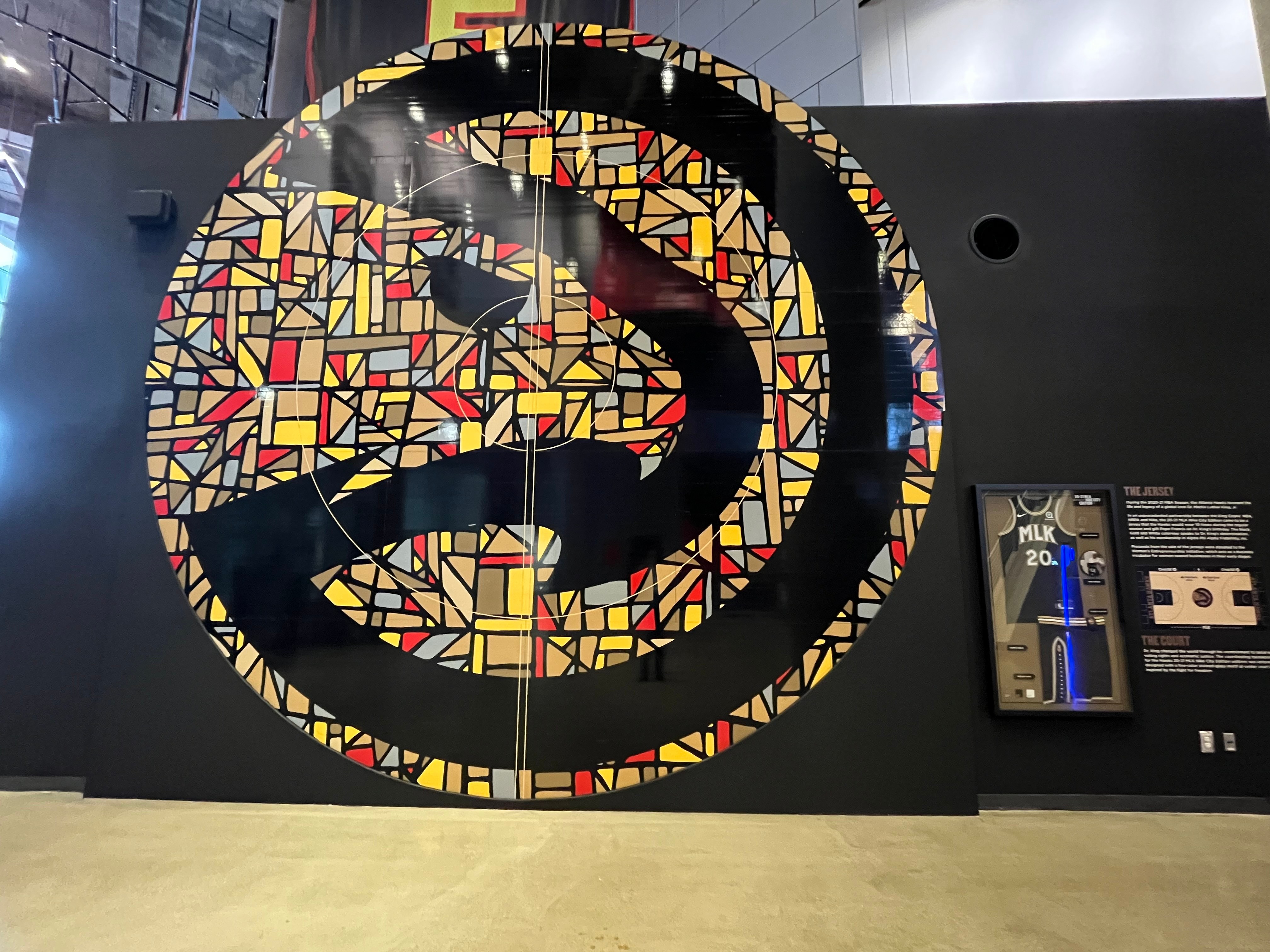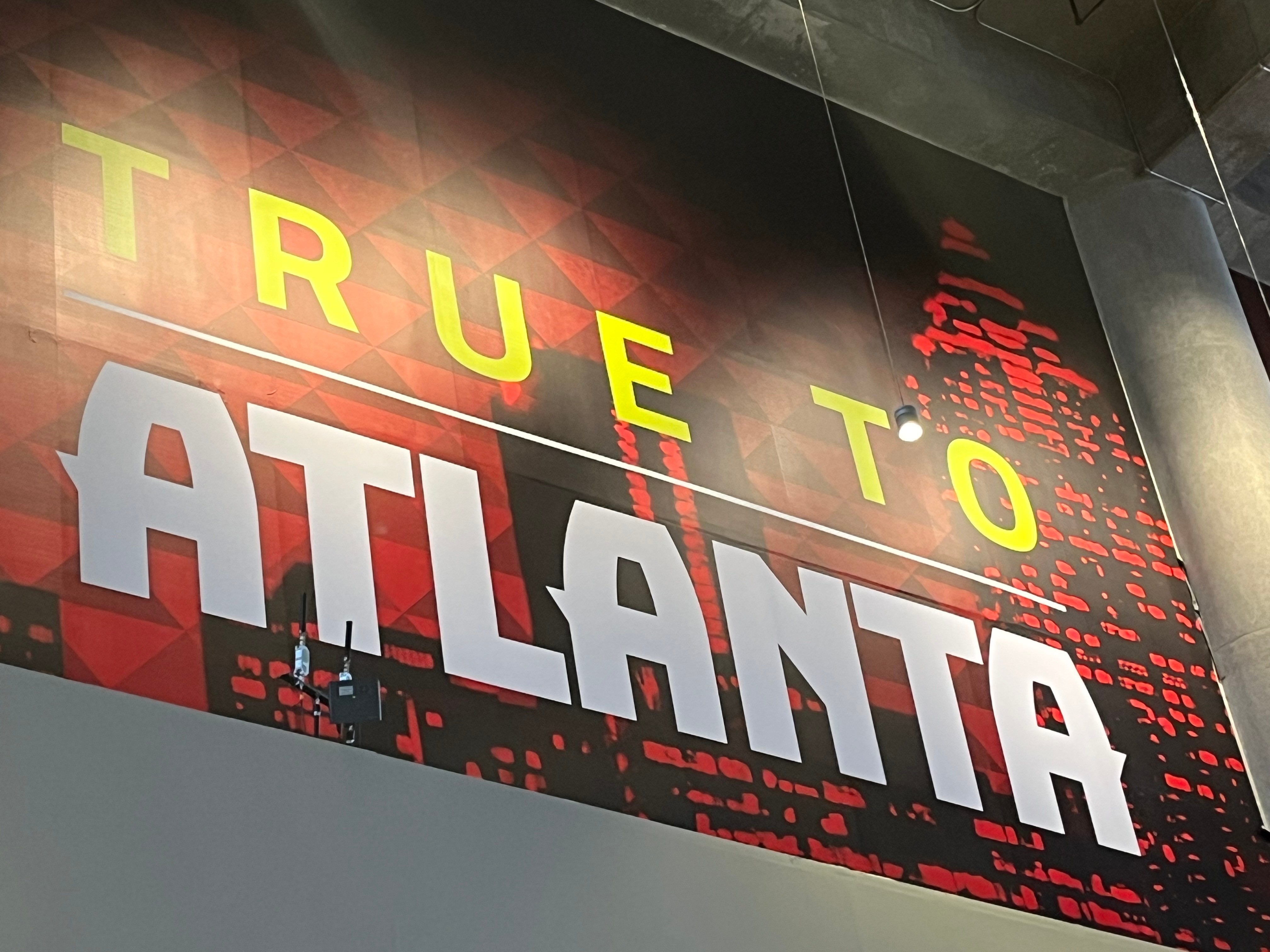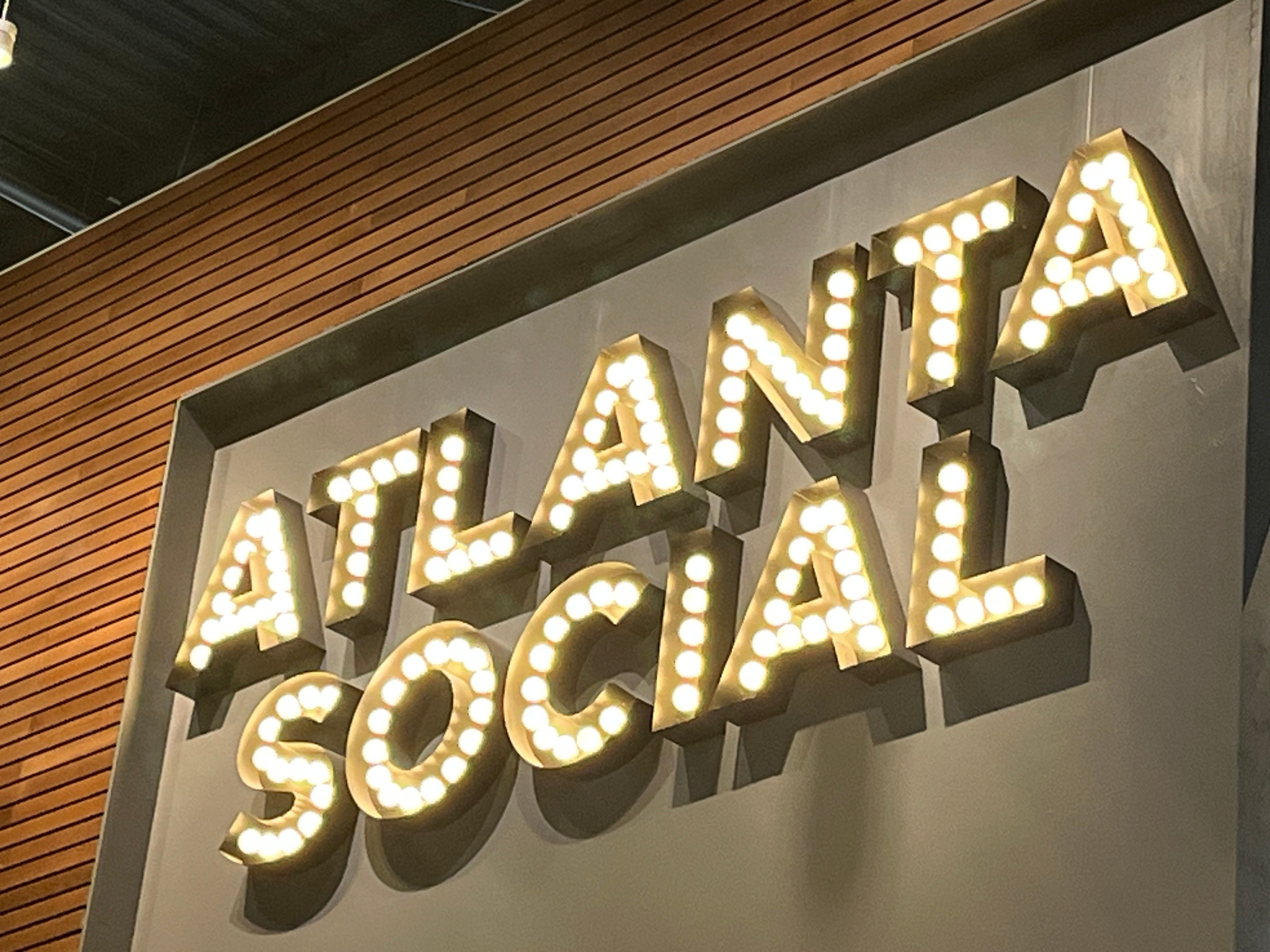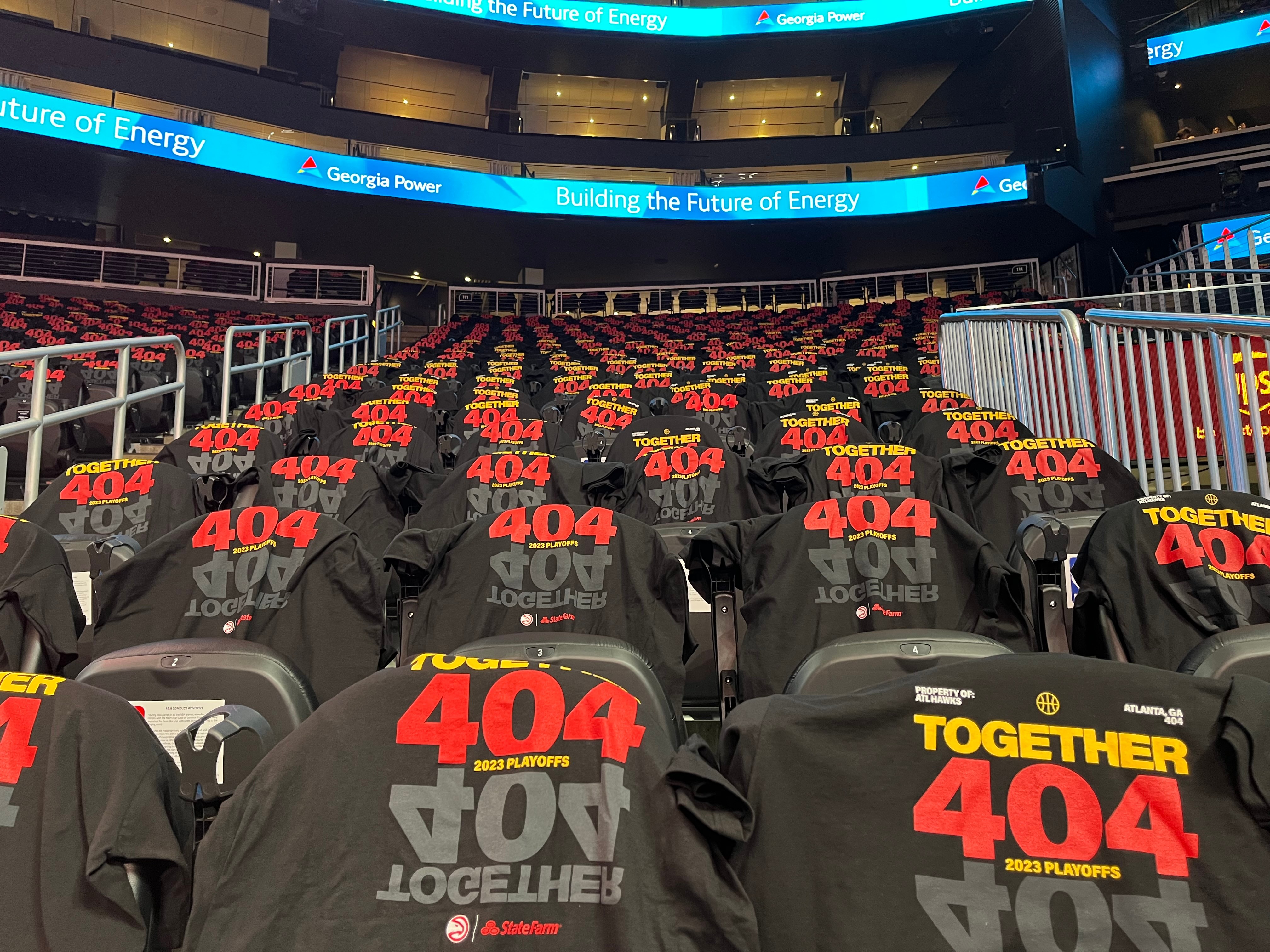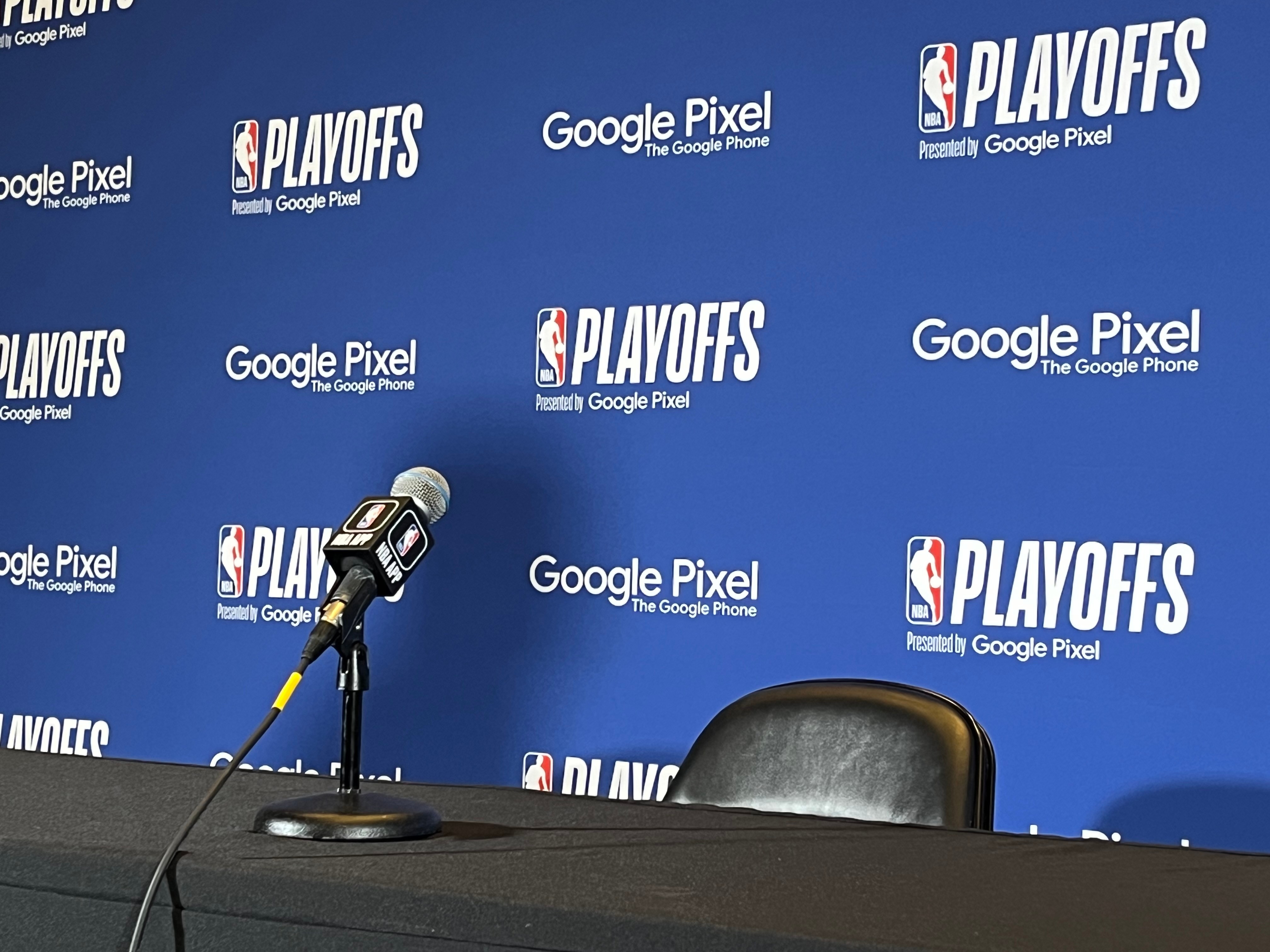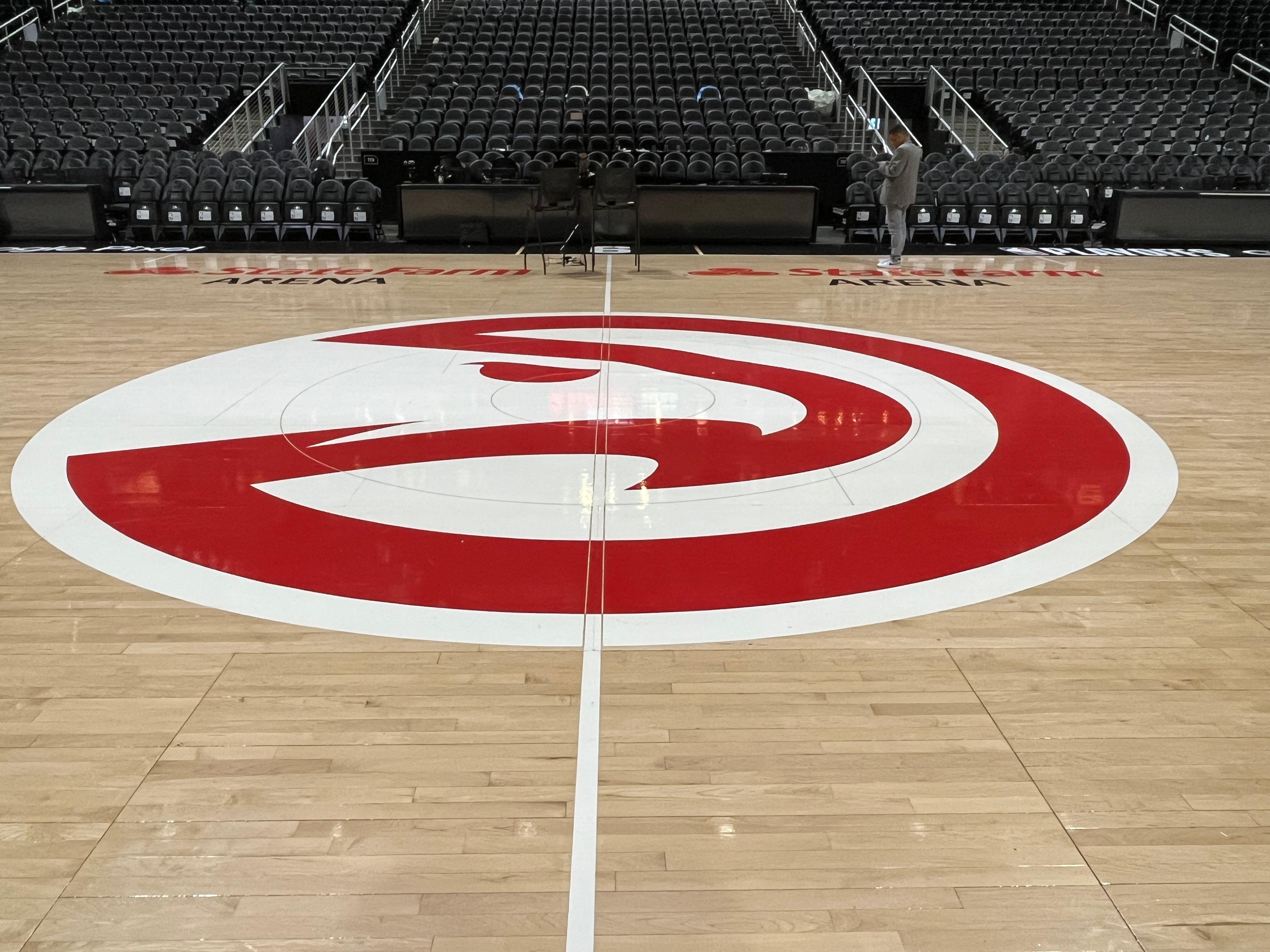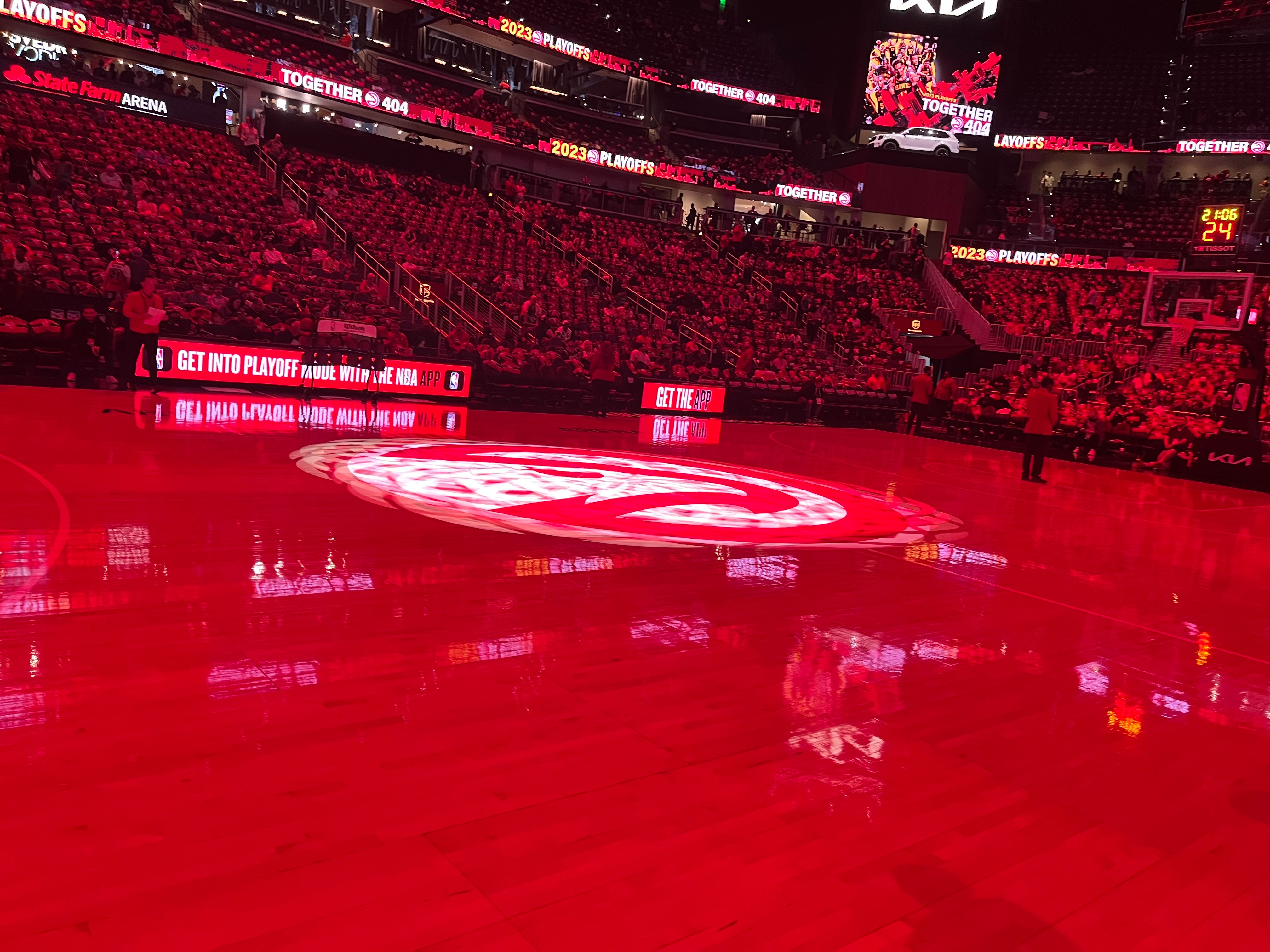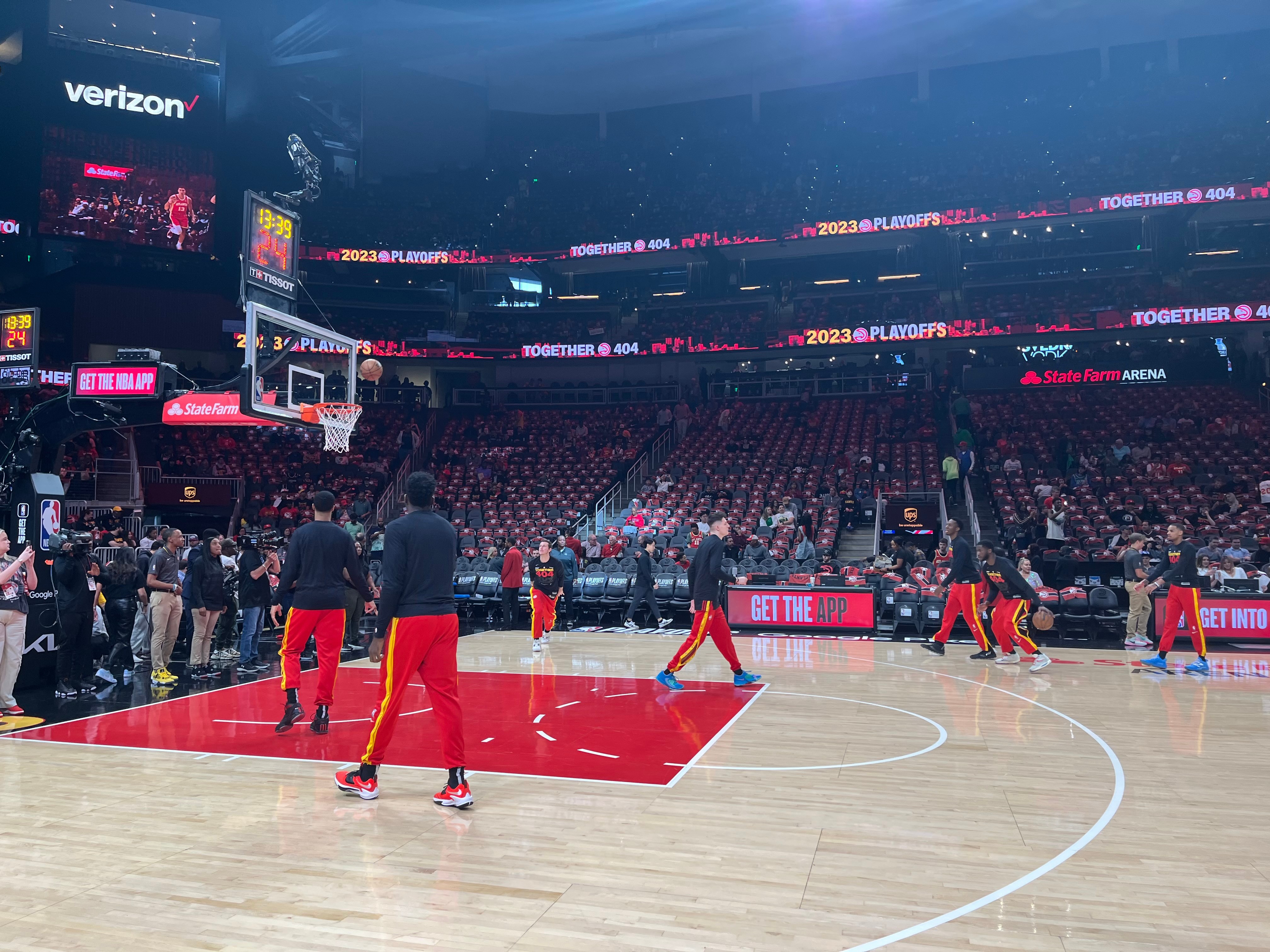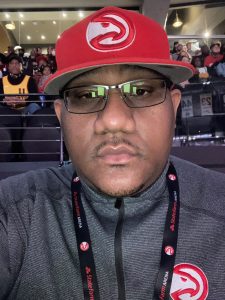
Today we’d like to introduce you to JR McHenry.
Hi JR, thanks for sharing your story with us. To start, maybe you can tell our readers some of your backstory.
The Bossman Show and the character “JR The Bossman” was born out of my creative juices inspired by my love of wrestling. My father was always referred to as “Bossman” or “Big Bossman” and I was referred to as “Lil’ Boss” or “JR”, so in coming up with a handle, I played off me and my father’s nicknames and went with “JR The Bossman”. I have many other glosses and handles that I’m known by, I may share some of those in our next interview.
This whole thing started off as an idea that was spurred by me being an avid consumer of sports talk radio and sports television. I didn’t grow up watching movies and certain shows because my favorite show was the sport that was on TV. I played sports; my father was a coach, so I’ve always been immersed in sports. Being the consumer of sports that I am, I felt in my heart of hearts that I can be a successful sports media professional because of my grounding and foundation in the sports realm from a young age. I was able to workshop my takes and my style in the barber shop debating with guys sometimes two to three times my age.
Unlike today with the social media and digital imprint of the sports world, I grew up in the time of the newspaper, sports magazines, the weekly games of the week and SportsCenter on ESPN. I read the newspaper sports section every morning prior to school, look forward to my magazines like the Inside Stuff coming in the mail, watching the Inside Stuff show on Saturday mornings and listening to afternoon drive-by and evening sports shows at night with my dad. I had two televisions in my room, one where I played video games and another one where I watched sports after I got home from practice and completed my homework.
One show in particular caught my attention as a young man was the Sports Reporters, which aired Sunday mornings on ESPN. It caught my attention because there were reporters that looked like me. Even as a young brother, I picked up on the fact that the majority of the players in the NBA and NFL in addition to a good number of players in the MLB from the African diaspora, look like me but weren’t covered by people that look like us. Seeing that at a young age always stuck with me because I knew even then that these players would benefit from being covered by someone with their shared experience, which in turn would cause them to potentially open up more.
With this as the backdrop, while I was promoting parties and events, interning at radio stations, running successful Facebook groups with my friends and managing models, I got the itch to start my own sports radio show. The success I saw in these other ventures was nice, but it wasn’t my passion, it’s not something that I was okay being my life’s calling; during this same time, I was working on my Master’s degree and I decided that what I’m getting my Masters in wasn’t my life path either; therefore the itch for sports radio was right on time. The thought of jumping into the sports media arena came to me while I was eating a chicken Philly cheesesteak sandwich in the cafeteria of Tennessee State’s Avon Williams Campus.
After this, I began meeting with those who were close to me and I trusted to run this idea by. It was a mixed bag of responses. The first brother who truly signed onto my vision and mission still does a show with me today. We do it twice a year and it’s the two biggest shows of the year for the content and material that is broadcasted to the masses. Going into that feedback process was interesting and it taught me some life lessons as well. One life lesson was that everyone isn’t going to believe in you or your vision and another life lesson was that everyone doesn’t want to see you succeed and or try something different that they can’t do.
Once these meetings with various individuals in my orbit concluded, I decided on a panel format for the show. The panel consisted of my friends from different aspects of my life. To be honest, if I had to do it all over again, I would just go it alone and not do a panel format, but the panel format was the format for the first 18 month iteration of the show. The show aired every day of the week. Weekdays we hit the air at 11pm ET and on weekends, we hit the air at 5pm ET. The beginning was truly trial by fire because at the time, I didn’t know what I was doing. I literally was throwing stuff against the wall and hoping it would stick. I did reach out to those in the urban radio and sports radio industries to get some guidance but none was given, every meeting I had set up, those types were canceled or rainchecked. As the show began to grow in every aspect I knew I had to make changes to the show’s format, which would cause some strife amongst my friends and I.
It got to a point where as I was growing and getting better in my hosting prowess and my initial crew was not. There was flow and decorum that I wanted but was not happening in the panel format being deployed, so there was frustration on my end that I kept suppressed because these were my friends. Many days and nights I thought about making a move on some of my friends but was hesitant due to our friendship. What sparked the ultimate decision to make a move I had been contemplating for a while was an incident that happened with a pretty prominent guest and I knew that couldn’t happen again, therefore a change was made immediately thereafter.
The change resulted in me going to a co-host format where I hosted shows with a different co-host every day of the week. The shows consisted of different themes that were not all sports. There were shows on wrestling, news of the day, politics, relationships, fantasy football and manhood in addition to the original sports show. This format continued for another 18 months. The partnerships I had formed were successful and productive, but I had a goal of syndication, self-syndication at that, having seven shows running at one time under one umbrella would have been difficult to syndicate. Therefore, I decided to consolidate and only host one version of the show and encompass all those other topics of those different shows under the official version of the show. As a result of the consolidation, I chose a singular co-host to host with me going forward, again that caused some tension with my co-host partners, but that decision had to be made to push the show and the brand forward.
Making this decision got the desired result I was looking for. I was able to go out and syndicate the show myself on numerous affiliates outside of the local area in various markets. I sold different station leaders on the content that I created that they couldn’t get on their own, therefore picking up the show would give them quality content they wouldn’t normally get. Let me be clear, I didn’t have a staff or team, I’m doing all this myself in between other ventures that I had my hands in. The show had a good run in this format, but I felt as if it was time for a change once more. The next change was me hosting the show on my own and having guests on the show to discuss an array of topics. As of this moment right now, the show’s format is me hosting it on my own and having the guests on that I choose to. This decision was solely about me wanting to control my own destiny and do things solely my way without having to confer with someone else or attempt to gain their buy-in. Every decision that I made in regards to the show format was for the better and ultimately got me to the point I am today where I’m sharing my story with you all.
Can you talk to us a bit about the challenges and lessons you’ve learned along the way. Looking back would you say it’s been easy or smooth in retrospect?
This has not been a smooth road at all. From the inception of the concept of “The Bossman Show” there have been many obstacles and challenges, some more significant than others. To get to this point through all the obstacles and challenges that were presented to me is a testament to my desire to not be held down by the circumstances of the media environment.
Being an independent media outlet is the biggest challenge of all my challenges in the sports media space. Now someone reading this may say, “Didn’t you choose to be an independent media outlet?”, “Didn’t you know the consequences of choosing the independent media path?” My answer would be yes, I chose to be an independent media outlet because I wanted to control my content, control the narrative of my content and not be told by someone what I can and can not do. but I did expect to have to earn my keep in the sports media space in the beginning, but not over a decade and change still dealing with the same issues I dealt with day one in the space.
As I was embarking on the journey to make my way in the sports media space, it was all about how I presented myself to these teams I wanted to cover and to the persons I wanted to have on the show as a guest. The pitch was me stating who I am, what I’m doing, how I intend to use the access if granted and ultimately asking for an opportunity making the appeal to these persons over credentialing and arranging interviews via the old adage of we have to start somewhere. When it comes to stuff like this, it was hit or miss on whether the persons in charge who would work with me or not, quite frankly to be honest, it’s still happening today, very much hit or miss in the space because I’m an independent media outlet.
Going to cover the games as an auxiliary outlet, as it was known back then, now referred to as independent media; since we’re not corporately backed, all eyes are on you. Every little thing is monitored and watched, one misstep could mean never being credentialed again, that’s the pressure when you’re trying to break in, one minor mistake and the persons in charge can deem you unworthy of coming back to covering the team. My method to ensure I didn’t mess up was to when I arrived at the arena or stadium to seek out a member of the PR staff to get the rules of engagement, so I could prove myself worthy of coming back and gain their trust going forward. After the game or event, I made it a point to go up and thank the PR staff for the opportunity to cover the game and I would send them an email of how I used the content that I attained from covering the game. I did that in my beginning stages of my sports media journey until the PR staff would tell me I didn’t have to do that, they trust me, they know what I’m about and that I’m good for as being allowed access to cover the games.
Coming in as the new kid in class at these games and events as independent media, the corporately backed media folks roll their eyes, say slick mess under their breaths and look down upon independent media when they enter amongst their space. I never tried to prove myself to these people, because quite frankly I don’t give a care about them, but unfortunately some of those in the independent realm try very hard to be accepted by them and in some cases compromise their coverage trying to emulate the corporate media people. The one thing that those who see in the sports media world know about me is that I move to my own beat, I host my show in my own style, I don’t try to mimic anyone else, I’m only about being the best version of me. I’m not consumed with what other people think because in the words of a certain wrestler, “It Doesn’t Matter What They Think”.
Breaking down the door of getting in the games as a credentialed independent media outlet is one thing, but the other piece of the puzzle is gaining access to the players and coaches to have them on your platform, that’s the battle I wage even to this day. It truly a tiered system whether you’re in the collegiate or professional ranks, these PR individuals move the same way, they totally discount and devalue independent media outlets, their attitudes are something to the effect of “be happy we let you in to cover our games and get the content you want while at the game, but anything else, you doing too much”, I feel like that’s hogwash to be honest if an individual is deemed worthy of gaining game access, they should be worthy of an opportunity to have a player or coach from the team that they’re covering on their platform. I really feel this way when it comes to those who have radio shows with call letters. As technology goes digital more and more, persons are starting their own blogs, podcasts, YouTube and other digital, it can get murky, but if it’s an independent media radio show or an independent paper or an independent TV show, those should be given an opportunity to have a player or coach on their platform from time to time in and around their other media commitments, if their work in the space merits it.
The tiered system that was already in place between corporately backed media and independent media widened due to the COVID-19 pandemic. Teams and leagues now designate media as Tier 1, Tier 2 and Tier 3. Tier 1 means you get locker room, practice and premium access to the players and coaches for your platform or outlet on gameday and non-gameday. Tier 2 means you’re credentialed to cover the games and general press conferences in addition to some practice access, but you don’t have locker room access or premium access to the players and coaches for your platform. Tier 3 means that you only have access to the team via Zoom, Skype or Microsoft Teams media availabilities. The official tiering system came into effect in response to the COVID-19 pandemic. Teams have used this to limit and curb those in independent media that they extend access to at the Tier 1 and Tier 2 levels. I remarked to many of my independent media comrades that the access we had prior to the pandemic we will never have again, this is their opening to take back all of the gains we in the independent media previously made over the years.
There’s also, unfortunately, a racial element to this as well. Many of the players collegiate or professionally are majority Black or come from the African diaspora in baseball, basketball and football. Now, since COVID, they’re not seeing as many people who look like them and can relate to in the media space who can cover fairly because they have a shared life experience. I know this isn’t a popular topic to undertake in the industry but it’s a fact, if you share a life experience with an individual, you understand them, there are commonalities, there are certain understood cultural things that bond you together that loosen up the player or coach and you get better content. I’m not saying the individuals who are non-Black or African diaspora persons can’t do a good job or be fair, they just don’t understand these people the way myself or my other Black or African diaspora persons do and can extract things from them they can’t on general principle. For those Black or African persons who work for corporately backed media, they have editors and other people over them that makes them stay within the lines per se and can’t get “too Black” to not offend their majority non-Black audiences which hamstrings them into being true to themselves. This is another reason why I chose the independent route because I did not want to have to pander or limit my true self or thoughts to appease an audience 30% or so wouldn’t even or understand despite cheering for these players to entertain and win games for them.
I have made the appeal to these PR staff that a majority of these guys would enjoy speaking with me on the show because of our shared cultural experiences. This appeal has softened the stance with some, especially after the wake of the George Floyd killing and the summer of racial awareness, but with some it’s still always a “no” or “a soft no” or “the run around is given”. My request to these teams is can you find 15 minutes on the player or coach’s schedule to accommodate a 15-minute interview with me. I don’t think that’s unreasonable, do you? I don’t even give a time, I just put in terms of, can you find 15 minutes at the player or coach’s convenience to join me and I get told the coach or player doesn’t have time to join me, but I turn around see them on another local, regional or national show, but they told me they didn’t have any time. Of course, I shoot an email or text or see them at the next game I’m slated to cover to gain some understanding and let’s just say the answers are not very good, they’re full of what everyone is after they eat or drink. This has led to some contentious relationships with me and some PR staffers across the spectrum. I stand on my principles. I honestly don’t care anymore, I’m done beating around the bush on this issue, so I just speak my mind and live with the result. The Tier 2 status wouldn’t be such a hindrance if we in independent media were given an opportunity to talk to players and coaches on our platforms, but we’re not, the locker room access pre-COVID gave many of us the opportunity to engage with the players especially and build rapport with them, but that avenue is now gone for independent media. A few snarky PR staffers over the years would say to me in so many words, that if I would grow my show more or join a corporately backed media organization that I would get the access I desire, that is them moving the goalposts and devaluing the mission I set forth to embark upon. I did retort to these jabronis, if you allowed me more access to the players and coaches, I could grow my platform exponentially, but since you choose to restrict my access due to me not working for a corporately backed entity, you are stunting my growth, not I, it runs hand in hand with the systemic, structural and institutional racism that has been thrust upon my people since the first Africans were brought to this place on those evil boats. It made them uncomfortable, but it had to be said, like I said previously, I don’t care anymore, I’m done beating around this bush, so I speak truth to power and let them deal with it, however they deal with it.
The last thing I want to touch on is in the South in certain cities that have a larger Black population than most is the unfortunate fact that certain teams have systematically little by little weed out independent Black media outlets. This is especially true for the NFL and MLB teams in addition to the major college conferences. Some of these teams, the only Black people covering the team work for corporately backed media, that’s wrong, then they try to tout that they have a diverse media population, which is a lie. Not knocking anyone’s hustle, but they hire a certain type of Black person, who they can control and know won’t push the envelope on certain issues. There are some teams that credential 8 to 12 persons from one outlet or papers from wayward towns who never show up but run the game that they can’t accommodate independent media as part of the credentialed body. There is no set criteria for independent media entry. It’s truly case by case basis and there are many non-Black independent media outlets that get in, who have no business being credentialed. It’s shameful how the NFL paints in its end zones “It Takes All Of Us” or “Black Lives Matter” but at the same time their member clubs are steady more shutting out independently owned Black media outlets, so anyone with a brain can see those token symbols of unity and understanding ring hollow. I understand teams have affiliates, flagships, local and regional commitments that they have an obligation to, but there’s an opportunity to work with independent media if they choose to, but rather than do the right thing, they rather be wicked and do the wrong thing by limiting and shutting independent media every chance they get.
Alright, so let’s switch gears a bit and talk business. What should we know about your work?
I’m an activist, advocate, beat reporter, consultant, counselor, executive producer, field reporter, a historian on African life and culture, life coach, notary, political analyst, radio host, salesman, sports director, social media manager, tax preparer, trusted source and writer. Some of these things I do are not sports media related, but they help fund my sports media expenses for travel, food and lodging in addition giving multiple streams of income at the same time. I’m most known for my radio program and covering sports across the spectrum of the collegiate and professional ranks. I’m known for my free-flowing, long-form interviews with guests along with guest appearances on our shows where I show off my wide-ranging perspective and infectious personality to entertain the audience. I’m very much known for hat selection whether it be a fitted, kangol or fedora which are paired up with some regular glasses or designer shades depending on the day. But wherever you run across me 9 times out of 10, I’ll be rocking something representing the A or something Atlanta.
I’m most proud that despite the obstacles and challenges I laid out for you that I’ve never given or accepted being treated as less than. I demand respect by the way I carry myself and go about my work and process. Considering all the struggles I laid out behind the scenes, look at the content and guest list I produce on a daily and weekly basis despite the roadblocks set forth before me with every step I take. I wasn’t given a thing to get me to where I’m at now, I had to go out and sell myself to these teams to get everything I’ve got. Every day I sell myself with my presentation and professionalism despite the mess I’m forced to deal with just because I chose a different path. I didn’t go to school for communications, I went to the school of doing in the flesh through trial and error to get to where I’m at today and now I can take my knowledge and experience and help others as they enter the space not make the same mistakes I did. That’s what I’m most proud of.
What sets me apart from others is that I understand every facet of the sports media world from an inside and outside perspective. Being able to put yourself in a PR staffer position, programmer position, advertiser position, consumer position and host position allows me to navigate and leverage each one of these stakeholders to attain the desired result for them and myself. More so than most in my position, I see through and cut through the nonsense quick, fast and in a hurry when it’s presented to me. Becoming a veteran in the space as I have, I’ve seen the good, the bad and the ugly of the sports media space, so nothing surprises or affects me unlike those who are new to space and haven’t endured what I have endured in this space. As it pertains to the show on-air itself, I have a range when it comes to topics and subject matter that many of my counterparts do not. I tend to create outside-of-the-box segments or have on guests that most in this position wouldn’t think of or shy away from. Not trying to emulate other shows is a big difference from many of my counterparts, they then try and copy other local and national shows in their markets which aren’t good to begin with or talk about certain subject matter just to talk about rather than staying true to themselves. I also have a rule that I don’t discuss teams that don’t credential me or allow me to speak to their personnel on the show. My feeling is if you can’t have the decency to respect me, this show and my body of work by credentialing me or allowing me the opportunity to talk to team personnel, I’m not giving them my airtime, my counterparts on the other hand talk about people weekly on their platforms that blatantly disrespect, not I, I got more respect for myself than that. The fact that I leave my audience laughing, thinking and wanting to pursue more breadcrumbs and feed themselves more knowledge for their enrichment and believing that every show is an opportunity to engage the listener’s mind and make a deeper impact sets me apart from the other hosts in this space.
What matters most to you?
There’s a few things that matter to me most. I would say that the main thing is that I’m true to myself in addition to being True to Atlanta. Staying true to myself and being my full self was key to my desire to enter the independent media space. The opportunity to speak to the issues affecting my people unapologetically was another key factor in me choosing this path I’ve embarked on over a decade and counting. Using my perspective from personal experience, elder collaboration and from reading has allowed me to share knowledge with the audience they usually would not get anywhere else.
Additionally, what matters is the relationships that I’ve developed with my guests off-air is unique and something that I cherish. I make an effort to try and meet up and have community with my guests when I can, if they’re within driving distance of Atlanta or if I’m near them in another city. I said this is another interview, the fact that I’m not transactional and that I value relationships is something that my guests see about me. I support my guests whether they win or lose and I know that they appreciate that.
These things matter most because they’re things I want to be known for. When someone thinks of me, I want them to say he was true to himself and he was real. In closing, a bonus, it also matters that I did things my way.
Pricing:
- 1: 30 second commercial – $275 week
- 2: 30 second commercial – $375 week
Contact Info:
- Website: https://BossmanShow.com
- Instagram: http://www.instagram.com/thebossmanshow
- Facebook: http://www.Facebook.com/therealjrthebossman
- Linkedin: https://www.linkedin.com/in/jr-mchenry-594a353a
- Twitter: http://Twitter.com/JRTheBossman
- Youtube: https://www.youtube.com/c/BossmanShow
- Other: https://bleav.com/shows/bossman-show/
